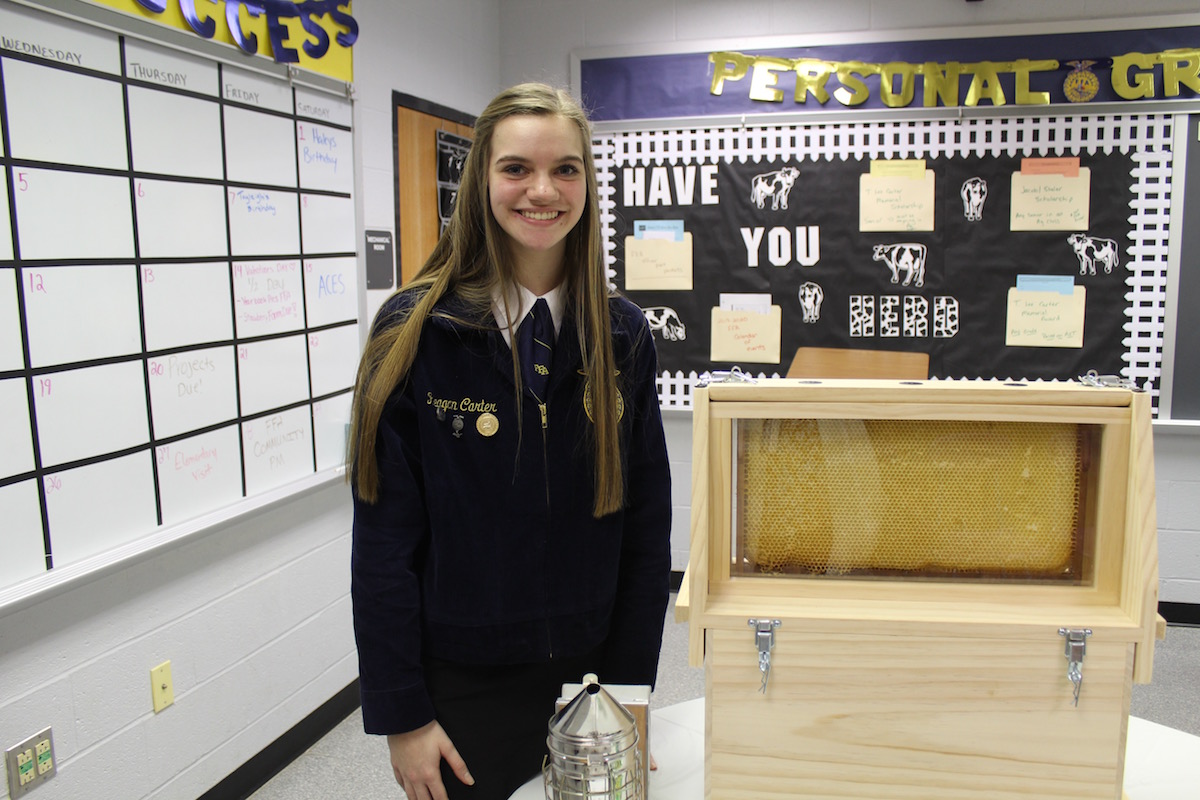
MCDONALD, Pa. — Agricultural education looks a little different at Fort Cherry High School than it did many years ago.
Reagan Carter, vice president of the school’s FFA chapter, talked about how it’s grown from mainly boys taking classes titled “Ag 1, 2, 3, and 4” to a complex program full of opportunity.
She addressed a crowd of local government, school and farm bureau officials and fellow FFA members gathered at the school, Feb. 25, for the Agricultural Education Showcase.
“From growing a hanging basket in the greenhouse, designing a floral display, caring for laying hens or exploring ag with our hydroponics tower garden,” Reagan said. “As a chapter, we take great pride in our agriculture department. Taking an agriculture class is more than taking an elective.”
It’s preparing students for future careers. Which is good because there are going to be a lot of job openings, said Scott Sheely, executive director of the PA Commission for Agricultural Education Excellence.
Fort Cherry was one of three schools across the state selected to show off the strengths of its agricultural education program, in celebration of National FFA Week, Feb. 22-29. Sheely was the keynote speaker at the showcase, in Washington County.

Workers needed
The agriculture and food industries are among the top in the state, and Sheely said in the next 10 years, there will be at least 75,000 job openings in those two industries.
That’s a low number, just the tip of the iceberg. It could be as high as 300,000 jobs, he said. The jobs needed are the typical ag jobs one might think of, but also related jobs like bankers, mechanics, engineers, scientists, food processors and distributors.
So, there is a lot of opportunity for job-seeking. But they don’t just need warm bodies to fill a space. They need workers with skills. It’s up to the schools and their agricultural education programs to get their students ready and be feeder programs for the workforce of tomorrow.
“If we don’t have a workforce, we don’t have an industry. And if we don’t have a feeder system, we won’t have a workforce,” Sheely said.
They’re already doing a good job at Fort Cherry, Sheely said.
Fort Cherry isn’t a big school. There are about 500 students enrolled at the high school, 100 of which are in the H.G. Parkinson FFA. The program is led by FFA adviser and ag teacher, Jodie Hoover, who’s been with the district for more than 20 years.
“We’re a little school, but we do a lot of great things,” Hoover said.

Hands-on experiences
Emilee Cowden and Alyssa Robinson are in the veterinary science class. During the showcase, they demonstrated how they used rabbits to learn proper handling and how to take vitals.
“[Hoover] had us put ourselves in the position of a vet tech to check over the animals,” Emilee said.
Fort Cherry also has an animal science class, horticulture, floral design and ag leadership and communications classes. Two greenhouses house the program’s hydroponics and aquaponics facilities.
In 2018, Fort Cherry students worked 7,676 hours towards their supervised agricultural experiences, project-based learning projects students take on to explore possible careers and other interests. They also invested $10,677 in supplies and livestock for those projects.
Reagan Carter started raising bees nearly three years ago with her father, although she quickly took over the endeavor. She thought her dad was crazy at first. He wanted to get bees after reading an article about honey bee decline, she said.
“At first, I was so scared of them. I got stung a lot,” she said. Then she threw herself into research about bees and realized the impact they have on agriculture. She thought it’d make a great project. She also grew to love the bees.
“One out of every three bites you eat depends on bees,” Reagan said. “Over 100 major crops are pollinated by bees.”
(Reporter Rachel Wagoner can be contacted at 800-837-3419 or rachel@farmanddairy.com.)










